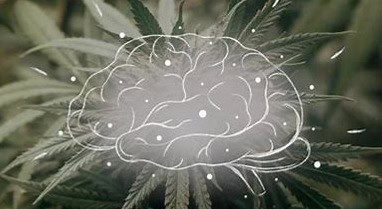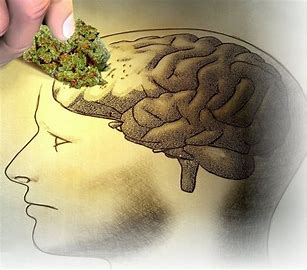Does Chronic Use of Marijuana Affect Long-Term Memory
Structural and Functional Brain Changes
Using marijuana over a long period changes how your brain works—and even how it’s built. It's becoming clearer that marijuana use affects long-term memory. Some of the most affected areas are the hippocampus and prefrontal cortex, which play a huge role in memory. Over time, these changes can really add up, impacting how you think and remember things. The hippocampus plays a key role in forming and retrieving memories and possesses a high concentration of cannabinoid receptors. Prolonged exposure to THC (tetrahydrocannabinol), the psychoactive component of marijuana, can lead to neuroadaptive changes, including:
- Reduction in hippocampal volume: Research shows that over time, the hippocampus shrinks in regular marijuana users. This shrinkage messes with new memory formation and affects your ability to recall older ones. Basically, it’s like your brain’s filing system starts to glitch.
- Disruptions in neural connectivity: Chronic use can impair the ability of neurons to communicate efficiently, affecting cognitive functions such as memory consolidation and retrieval.
Marijuana Use Affects Long-Term Memory Consolidation and Retrieval
Memory consolidation is how short-term memories are stabilized and stored as long-term memories. THC disrupts this process by interfering with normal hippocampal function. Over time, chronic exposure may to the following experiences:
- Impaired ability to store new information: Long-term patients often report difficulty learning and retaining new material.
- Reduced recall efficiency: Even if information is stored, it may be harder for chronic users to retrieve details, particularly for verbal memory tasks.
- Altered episodic memory: As heavy marijuana use particularly affects episodic memory (personal experiences and events), it becomes harder to recall past events in detail.
Risk of Developing Persistent Cognitive Deficits
While some cognitive effects of marijuana use are reversible after cessation, long-term heavy use can result in persistent memory impairment.
- Studies on long-term vs. occasional use: Researchers suggest that heavy, prolonged marijuana use (especially when started in adolescence) leads to measurable declines in cognitive abilities, including verbal memory and executive function.
- Longitudinal studies indicate lasting effects, with some former heavy users continuing to show cognitive impairments even after quitting for months or years.
- Increased risk of cognitive decline in older users: Some research suggests that chronic marijuana use may accelerate age-related memory impairment.
Chronic Use Marijuana Use Affects Long-Term Memory Deficits in Different Age Groups
- Adolescents and young adults: Scientists link early and heavy marijuana use to long-term cognitive deficits, including reduced IQ and difficulties with memory processing, while the brain is still developing during adolescence. This fact leads to age restrictions for medical marijuana evaluations in some states.
- Middle-aged adults: Memory issues might not hit adult consumers as hard, but that doesn’t mean they’re off the hook. Even if the effects seem subtle, using marijuana regularly over time can still slow you down mentally. Think trouble focusing, making decisions, or just keeping up with everyday tasks—stuff that can really throw a wrench in your work and daily life.
- Elderly users: Here’s the thing: as we age, our brains naturally slow down a bit—it’s just part of life. But if you’re using marijuana regularly over the years, it could make those memory problems worse. And in some cases, it might even raise the risk of conditions like Alzheimer’s or other neurodegenerative diseases. So, while some forgetfulness is standard, chronic use could speed things up in a way you don’t want.
Potential for Memory Recovery After Abstinence
Some research suggests that memory impairments caused by chronic marijuana use may be partially reversible after prolonged abstinence, depending on factors such as:
- Age of onset and duration of use: Younger users who quit early may recover cognitive function more effectively than those who have used heavily for decades.
- Neuroplasticity: The brain can reorganize and form new neural connections, which may allow some users to regain cognitive function over time.
- Time since quitting: Studies indicate that memory function improves within weeks to months after stopping marijuana use. However, some deficits may persist in long-term heavy users.
Conclusion
There can be side effects to using marijuana over the long haul. It can shake things up in your brain, especially in areas tied to memory. Over time, it can mess with your ability to store, recall, and even adapt your thinking—and these effects might stick around even after you stop using. The good news? Some memory recovery is possible, but how much you bounce back depends on how long you’ve used it, your age, and your unique biology. And the benefits of using medical marijuana for certain conditions (i.e., epilepsy or PTSD) may outweigh the risks. That said, we still need more research to figure out the complete picture of how marijuana affects the brain long-term and what we can do to help protect memory in the process.


